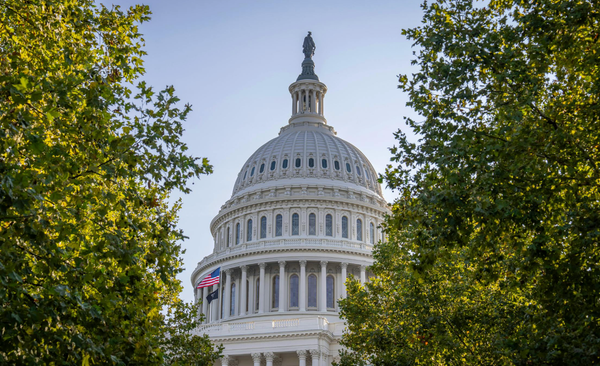Trump and Rubio's Chinese Exclusion is Racist Security Theater

We've heard the term "security theater" thrown around here and there. Mostly, it refers to the body scanners at the airport and check-in process that makes people take their shoes off unless they shell out money to some sort of TSA-affiliated contractor. It's a big process, but it doesn't actually make airlines more secure in the longer run.
Within this phrase, I want to single out the word "security." Let's really scrutinize the evolution of this phrase as it relates to China and the risks that it poses to the United States.
As of the tail end of May 2025, the People's Republic of China is a large nation-state with military, economic and political goals that often do not match those of the United States. These goals also run roughshod over human rights, minorities, Meghan Thee Stallion's song W.A.P's twerking segments, and many other groups, cultural issues and values. I am not joking about the censor box of the twerking. Look it up.
The American response to these problems, which run from quirky cultural censorship efforts to horrendous law enforcement campaigns, is to make it impossible for Chinese students to take coursework and get degrees from American universities. No disciplinary action on capital and data brokerage, mind you. Students.
Why is there a fixation on the Chinese international student? Visually, their presence fuels panic, which we can trace back to Steve Bannon's comments prior to joining the first Trump Administration:
TRUMP: We have to keep our talented people in this country.
BANNON: Um—
TRUMP: I think you agree with that. Do you agree with that?
BANNON: Well I got a tougher — you know, when two thirds or three quarters of the CEOs in Silicon Valley are from South Asia or from Asia, I think — on, my point is, a country’s more like, [inaudible], a country’s more than an economy. We’re a civic society.
Regardless of how much money foreigners contributed to the economy, they are not seen as a desirable presence to white nationalists like Bannon and Trump. Thus, efforts to pin foreigner scholars, students and workers to criminal conduct could find a sympathetic ear easily in Trumpian circles.
The false idea that Chinese international students are all fully trained, indoctrinated Communist Party apparatchiks is a long running fantasy within the China work sector. Rather than assess the problems of Chinese embassy pressure on students through some CSSA (Chinese student & scholar association) activities or communications, this faction within the China hawk community wants the baby, bathwater and tub thrown out. They're thoroughly convinced of a yellow peril that has infiltrated core institutions of the United States.
This paranoia, believe it or not, helps Chinese United Front work because they're able too still conduct business unimpeded through legal lobbying, marketing, data operations and other practices that use American institutions. TikTok's Shou Zi Chew can publicly flatter Trump and delay a potential ban of the app. Elon Musk's practices in investing, finance and data usage continue to go unchecked as he maintains business interests within China. However, the largely powerless class of students aiming for undergraduate degrees are left holding this bag.
At the helm of these new policies cracking down on Universities is Secretary Marco Rubio, who many in the China community consider well-studied. He's worth noting as an architect to visa policies because people within his offices in the Senate and State Department pay attention to how they can justify China-linked policies. Rubio has also been consistently using the State Department's powers to crush American dissent, protest and academic expression. It sounds familiar to Chinese state practices of repression because it is a similar type of repression, regardless of how much American patriotism is painted upon the machinery.
The intellectual scaffolding of modern-day Chinese exclusion uses sleight of hand that equivocates students and spies without substantive proof, and does not differentiate much in terms of how either group is to be treated:
Despite some attempts to address these issues, including the shutdown of the PRC Consulate General in Houston, and the good intentions of American academics promoting “principled engagement,” these efforts are like one hand clapping in the face of an uncompromising dictatorship. The CCP is fundamentally opposed to the principles of academic freedom, transparency, and mutual cooperation. It views every academic engagement as an opportunity to gain strategic advantage. Any compromise on its ideological control is seen as a threat, and any reciprocal academic openness is out of the question.
This is a piece from Miles Yu, a Hoover Institute fellow and former advisor to Mike Pompeo, Trump's first secretary of state. Yu's arguments act as the scaffolding of current restrictions on American universities. This logic believes that each American-imposed restriction is born of good intention, of protection of American assets and perfectly reasonable threat control.
You can more or less draw a line from the brief's arguments to a memo titled "New Visa Policies Put America First, Not China" by Rubio's press office. To their ideological fellow travelers, the United States cannot fail people living in its borders. It can only be failed.
To make matters intellectually worse and likely to stoke fear even further, this policy is conducted at a time when the State Department happily took an axe to many China specialist desks. After a whirlwind sweep by DOGE, the State Department has seen cuts to branches covering human rights, international aid, and many other specialists that previously had institutional and policy knowledge of Chinese language and political risks posed to the United States. So what's left, exactly? A security theater meant to keep borders closed first and think about China as an afterthought, regardless of what the labels say.



